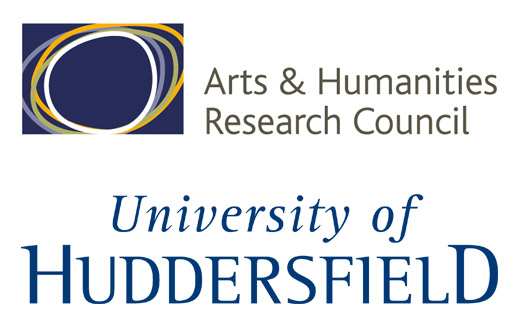LABORATORY PHASE (May – October 2017)
The following eighteen albums have been selected from the Smithsonian Folkways Recordings archives label to serve as the core focus of investigation during the 2017 intensive laboratory phase of research.
- Abayudaya
- An Evening at Cafe Feenjon
- Ballads, Wedding Songs, and Piyyutim of the Sephardic Jews of Tetuan and Tangier, Morocco
- Bukhara: Musical Crossroads of Asia
- Chad Gadya — One Kid
- Ethiopia: The Falasha and the Adjuran Tribe
- Greek-Jewish Musical Traditions
- Hassidic Tunes of Dancing and Rejoicing
- Jewish Folk Songs
- Jewish Life: The Old Country
- Morasha: Traditional Jewish Musical Heritage
- Music of the Spanish and Portuguese Synagogue
- Religious Music of the Falashas
- Salute to Israel
- Sephardic Folk Songs
- Songs of the Ghetto
- The Travelling Jewish Wedding
- The Yemenite Jews
As of early June, the three core researchers are working with the following songs:
Ben Spatz
- ‘Chad Gadya’, Chad Gadya [Aramaic]
- ‘Yearning Tune’, Hassidic Tunes of Dancing and Rejoicing [nonlexical]
- ‘Yafim Halelot’, Jewish Folk Songs [Hebrew]
- ‘Hinei Ma Tav’, Abayudaya [Hebrew, Luganda]
- ‘Tulo Tulo’, Abayudaya [Luganda]
Nazlıhan Eda Erçin
- ‘Shishelai’, An Evening at Café Feenjon [Turkish]
- ‘Fel Sharah Canet Benet Masha’, Sephardic Folk Songs [French, Spanish, Italian, Arabic, English]
- ‘Love Song’, Morasha [Turkish]
- ‘Rachel’, Salute to Israel [Hebrew]
- ‘Durme Hermoza Donzeya’, Sephardic Folk Songs [Ladino]
Agnieszka Mendel
- ‘A-A Lyu Lyu’ and ‘Hob ich mir a schpan’, Jewish Life: The Old Country [Yiddish]
- ‘Se Ug’di’, Jewish Folk Songs [Hebrew]
- ‘En ca de mi padre’, Ballads, Wedding Songs, and Piyyutim of the Sephardic Jews of Tetuan and Tangier, Morocco [Ladino]
- ‘Minush’, Sephardic Folk Songs [Ladino]
- ‘Eyfo Hem’, Salute to Israel [Hebrew]
- ‘Ahot ketana’, Greek-Jewish Musical Traditions [Hebrew]
- Selection not from Smithsonian albums: ‘Spiel, spiel’; ‘Oy mame’ [Yiddish]
PREVIOUS PHASES (2012 – 2017)
The following songs were explored during the first several phases of the project in New York City and Huddersfield. They were learned through a variety of sources and methods. Some are still being practiced.
‘Ale brider’ (Yiddish). Traditional.
‘Avinu malkeinu’ (Hebrew). Traditional.
‘Dror Yikra’ (Hebrew). Text by Dunash ben Labrat, Fez-Baghdad-Sfarad, 10th Century. Melody: Bostoner Hassidic Tradition, performed by the Admor Levi Yitzchak Horowitz ben Pinchas David, the Bostoner Rebbe. Source: Invitation to Piyut.
‘El adon’ (Hebrew). Text: Anonymous. Melody by Lynn Monte, Algeria. Source: Invitation to Piyut.
‘Haben yakir li’ (Hebrew). Arrangement by Herbert Rothgarber. Performed by the Velvel Pasternak Chorus. Treasury of Hassidic Song, Collector’s Guild Records. Source: Recorded Sound Archives.
‘Hineh ma tov’ (Hebrew). Traditional.
‘Hineh ma tov’ (Hebrew and Luganda). Melody by the Young Jewish Club, Mbale, Uganda, early 1980s. Abayudaya: Music from the Jewish People of Uganda, Smithsonian Folkways Recordings.
‘Bina’s Nigun’ (nonlexical). Composed and performed by Joey Weisenberg & The Hadar Ensemble. Joey’s Nigunim, Vol. III: Live in the Choir Loft, Mechon Hadar (New York, 2013).
‘Joshke Joshke’ (Yiddish). Traditional. Performed by Caridwen Irvine-Spatz. Sqworld Record, Mighty Squirrel (Portland, 2010).
‘Min alu Dawit’ (Amharic). Arranged by Demeke ben Engda and Daniel Desalegn Firku. Performed by Demeke ben Engda with Beta Avraham, Jewish Community of North Shewa, Ethiopia. Temesgen. Source: Kulanu.
‘Nigun Simcha’ (nonlexical). Traditional. Performed by Avraham Fried. The Baal Shem Tov’s Song, Sameach Music Inc. (New York, 2010).
‘One Day’ (English). Traditional (‘Papir Iz Doch Vays’). Collected and translated by Ruth Rubin. Jewish Folk Songs in Yiddish and English, Oak Publications (New York, 1965).
‘Un Nisn’ (Yiddish). Text by S. Ansky (1919), from The Dybbuk. Melody based on a recording by Noyekh Nachbush, who originated the role of Messenger, Vilna Troupe (1920). Special thanks to Debra Caplan, Baruch College, CUNY.
‘V’Ani’ (Hebrew & nonlexical). Arrangement by Yisroel Lamm. Performed by David Werdyger with the Boyaner Choir. Boyaner Nigunim, Aderet Records. Source: Recorded Sound Archives. https://rsa.fau.edu/album/44948


